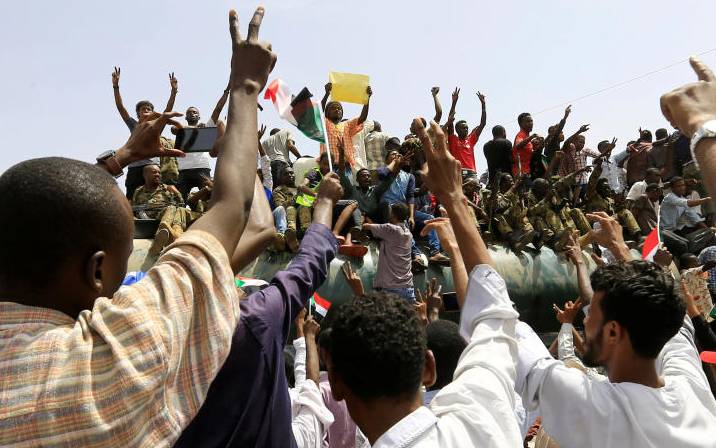×
The Standard e-Paper
Join Thousands Daily

Sudanese demonstrators ride atop a military truck and chant slogans as they protest against the army's announcement that President Omar al-Bashir would be replaced by a military-led transitional council, near Defence Ministry in Khartoum, Sudan April 12, 2019. [REUTERS]
The armed forces of Algeria and Sudan, which pushed out the long-serving rulers of those countries after mass protests, are following a script that has failed millions of Arabs since the 2011 uprisings.